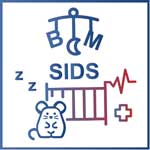In the D2K Capstone program, interdisciplinary teams of students (advanced undergrads, professional master's students, and Ph.D.) work on a semester-long real-world project sponsored by our D2K Affiliate Members.
Spring 2023 Projects
 Audubon
Audubon
Team Audubon | Deep Learning-Based GUI For Waterbird Detection In Drone Images
Houston Audubon conducts an annual survey of Texas colonial waterbirds using aerial drone photography. We developed a deep learning model that detects and classifies waterbird species in drone images more accurately than its predecessors. We also built an easy-to-use GUI for scientists to annotate their own drone images faster.
Student Team Members:
- Ben Daecher (BA), Economics, 2023)
- Jiehui Li (MS, Computer Science, 2023)
- Jose Mata (BA, Computer Science, 2023)
- Zeyu (Dennis) Yang (MS), Data Science, 2023)
Sponsor and Mentors:
- Sponsor: Anna Vallery, Richard Gibbons, Hank Arnold, Alexis Baldera
- D2K Fellow, PhD Mentor: Krish Kabra
- Faculty Mentor: Dr. Arko Barman
Watch 1-minute video highlight →
 BakerRipley
BakerRipley
Team BakerRipley | Predicting Themes for Community Neighbor Interviews
BakerRipley is a nonprofit organization based in Houston, Texas which connects low-income families and individuals to support and elevates emerging neighborhoods through education, resources, and connections so they can achieve the life they have imagined. We strive to develop a machine learning solution that takes the current process of intaking qualitative data to identify themes and summarize the results, to increase efficiency and streamline the process to help BakerRipley make more informed decisions on how to serve Houston.
Student Team Members
- Charlene Yu (MS, Electrical & Computer Engineering, 2023)
- Claire Xu (BS, Computer Science, 2023)
- Kelly Liu (BS, Statistics, 2023)
- Rambod Azarbad (BS, Computer Science & Statistics, 2023)
- Yuying Liu (MS, Data Science, 2023)
Sponsor and Mentors
- Kristen Deppe, Director of Research & Evaluation
- Travis Harry, Data Visualization & Insights Specialist
- Nelly Beugre, Data Automation & Evaluation Specialist
- D2K Fellow, PhD Mentor: Dr. Ethan Yeh
- Faculty Mentor: Dr. Arko Barman
Watch 1-minute video highlight →
 Baylor College of Medicine (Ray Lab)
Baylor College of Medicine (Ray Lab)
BCM SIDS | Assessing Sudden Infant Death Syndrome Risk in Mouse Models using Cardio-respiratory Signal Processing
Sudden Infant Death Syndrome (SIDS) is a condition where apparently healthy infants die suddenly and unexpectedly, with no clear cause determined after investigation. The Ray Lab at Baylor College of Medicine has developed genetic mouse models and a robotic platform to investigate the role of specific neurons in SIDS. Our project aims to analyze respiratory and ECG data from these models to classify their sensitivity to SIDS and predict outcomes, potentially contributing to new prevention and treatment strategies.
Student Team:
- Xuetao Hu (MECE, Electrical and Computer Engineering, 2023)
- Quan Le (BA, Computer Science/Mathematics/Computational and Applied Mathematics, 2023)
- Daniel Liang (BS, Computer Science, 2024)
- Katie Salmon (BA, Statistics, 2023)
- Alena Streletskaia (PhD, Biochemistry and Cell Biology, 2024)
Sponsor and Mentors:
- Sponsors: Dr. Russell Ray and Dr. Christopher Ward.
- D2K Fellow, PhD Mentor: Xin Tan
- Faculty Mentor: Dr. Su Chen
Watch 1-minute video highlight →
 Houston Fire Department (HFD)
Houston Fire Department (HFD)
Data Dalmatians | Identifying Motor Vehicle Collision Prevention Opportunities in the Houston Fire Department
Vehicle collisions are one of the leading causes of death in America, and collisions involving fire department vehicles present unique risks to both civilians and fire department staff. We utilize a dataset of motor vehicle collisions in the Houston Fire Department (HFD) from 2010-2022 to develop supervised and unsupervised classification models based on work shift data combined with environmental and human factors that affect vehicle operation. We also geospatially analyze the locations of HFD collisions contrasted with civilian collisions to discover common patterns and trends between the two datasets.
Student Team Members:
- Jiazhang Yu (MDS, Data Science, 2023)
- Harry Golen (BA, Political Science, 2023)
- Natan Rivera (BS, Mechanical Engineering, 2023)
- Abdullah Zaher (MECE, Electrical and Computer Engineering, 2023)
- Bridget Lee (BA, Cognitive Science, 2023)
Sponsor and Mentors:
- Sponsor: Leonard N. Chan, Michael A. Marino
- D2K Fellow, PhD Mentor: Akshat Dave
- Faculty Mentor: Dr. Su Chen
Watch 1-minute video highlight →
 Medical Informatics Corp. (MIC)
Medical Informatics Corp. (MIC)
Team MIC | A Machine-Learning Approach to Predicting Thermodilution Cardiac Output With Arterial Waveforms
Patients within a hospital cardiac intensive care unit experience high mortality rates due to sudden changes in heart condition. Healthcare workers’ current solution is to monitor patients’ cardiac output (blood pumped by the heart per minute), which requires a painful, expensive, and invasive procedure to measure. Together with Medical Informatics Corp, we aim to mitigate these costs by utilizing time series and signal processing methods to predict cardiac output with less invasive measurements e.g. electrocardiogram and arterial blood pressure waves.
Student Team Members:
- Sebastian DiPrampero (BA, Computer Science, 2024)
- Laura Jabr (BS, Statistics, 2023)
- Alex Susskind (BA, Statistics, 2023)
- Jack Zhang (BA, Operations Research, 2023)
Sponsor and Mentors:
- Sponsor: Sulimon Sattari, Dr. Sebastian Tume
- D2K Fellow, PhD Mentor: Beniamino Hadj-Amar
- Faculty Mentor: Dr. Arko Barman
Watch 1-minute video highlight →
 Texas Children’s Hospital (TCH-ER)
Texas Children’s Hospital (TCH-ER)
TCH-ER | Predicting Patient Volume in Emergency Departments
Texas Children’s Hospital houses the largest Pediatric Emergency Centers serving the Greater Houston area, seeing 180,000 patient encounters in a single year between its three campuses. We applied machine learning methods to construct a model that forecasts patient volume in the EC to be utilized by staffing management to minimize employee burnout and increase efficiency of patient care.
Student Team Members:
- Giovanni Aiello (Phd Economics, 2024)
- Amanda Dominguez (BA, Statistics, 2023)
- Calvin Guo (BA, Statistics & Economics, 2025)
- Sarah Han (BS, Computer Science, 2023)
- Eric Li (BS, Statistics, 2023)
- Haocheng Zhang (BA, Statistics, 2024)
Sponsor and Mentors:
- Sponsor: Christian Jenson (Assistant Director Analytics & Insights), Jami Miller (Senior Project Manager Analytics & Insights)
- D2K Fellow, PhD Mentor: John Zito
- Faculty Mentor: Dr. Xinjie Lan
Watch 1-minute video highlight →
 Texas Children’s Hospital (TCH-Clinical Notes)
Texas Children’s Hospital (TCH-Clinical Notes)
Save the ChildreNLP | Texas Children’s Heart Center Registry Abstraction
We are employing Natural Language Processing techniques to automate the extraction of patient information from clinical notes at Texas Children’s Hospital. The impact of our project is to facilitate the transfer of TCH patient information to an international registry, thus saving TCH nurses from time-intensive data entry.
Student Team Members:
- Mahmoud Al-Madi (Class of 2023 - BS in Electrical and Computer Engineering)
- Timofey Efimov (Class of 2023 - BS in Electrical and Computer Engineering)
- Alex Holzbach (Class of 2024 - BS in Electrical and Computer Engineering, BA in Mathematics)
- Robert Kenworthy (Class of 2023 - BS in Electrical and Computer Engineering)
- Michael Tang (Class of 2023 - BS in Electrical and Computer Engineering, BA in Mathematics)
- Alexa Thomases (Class of 2023 - BS in Electrical and Computer Engineering)
Sponsors and Mentors:
- TCH Sponsors: Di Miao (Senior Project Manager), Christian Jenson (Assistant Director Analytics & Insights)
- Faculty Mentor: Dr. Arko Barman
Watch 1-minute video highlight →
 UTHealth/TARCC
UTHealth/TARCC
Team UT-TARCC | Predicting Alzheimer’s Risk
Our project aims to leverage machine learning to predict early-onset Alzheimer's disease by analyzing various physical, mental, blood, and protein biomarkers of patients. By achieving a similar degree of accuracy as traditional diagnostic methods, we hope to provide an alternative, less cumbersome way to diagnose this neurodegenerative disorder that affects millions of people in the United States.
Student Team Members:
- Rogelio Montemayor, BS, Computer Science, 2023
- Fadeel Sher Khan BS, Bioengineering, 2023
- Xander Abbott, BS, Statistics, 2023
- Kyle Derbabian, BS, Computer Science, 2024
- Michelle Lee, BA, Computer Science, 2024
Sponsor and Mentors:
- Sponsor: John Broussard, PhD (UT Health)
- D2K Fellow, PhD Mentor: Maryam Khalid
- Faculty Mentor: Dr. Su Chen
Watch 1-minute video highlight →
 Westlake
Westlake
Team Westlake | Cracking Furnace Object Detection Through Image Segmentation
Using infrared images of the insides of ethylene cracking furnaces, our team leverages classical and deep learning computer vision techniques to identify the different components in each image. These segmented pictures can be used to more efficiently monitor pipe temperatures within the furnaces than a manual method, leading to increased operational safety and reduced costs.
Student Team Members:
- Daniyar Akizhanov (BS, Computer Science & Operations Research, 2023)
- Can Erdogan (BA, Statistics, 2023)
- Bazin Sineshaw (BS, Computer Science, 2023)
- Henry Thurman (BA, Statistics & Sport Analytics, 2023)
- Tate Ward (BS, Computer Science, 2023)
Sponsor and Mentors:
- Sponsor: Michael Dessauer & Yi Liu
- D2K Fellow, PhD Mentor: Hao Liang
- Faculty Mentor: Dr. Xinjie Lan
Watch 1-minute video highlight →
 MnM
MnM
MnM | Predicting Mental Health Conditions and the Impact of COVID-19 on Technology Industry Workers: A Machine Learning Analysis
This project focuses on addressing the impact of mental health in the tech industry by utilizing the Open Sourcing Mental Illness (OSMI) dataset. With 6 years of data, we conduct a machine learning analysis to identify the factors that most affect mental health conditions among technology workers. By exploring various factors such as demographics, work logistics, perception towards mental health, and medical history, we aim to provide insights that can help companies make data-driven decisions to improve their workplace environment and better support their employees' mental health.
Student Team Members:
- Nasha Wanichwecharungruang BA, Cognitive Sciences, 2023
- Matthew Su, BA, Neuroscience, 2023
- Milan Chopra BA, Cognitive Sciences, 2023
Sponsor and Mentors:
- Sponsor: -
- D2K Fellow, PhD Mentor: Nhi Le
- Faculty Mentor: Dr. Xinjie Lan
